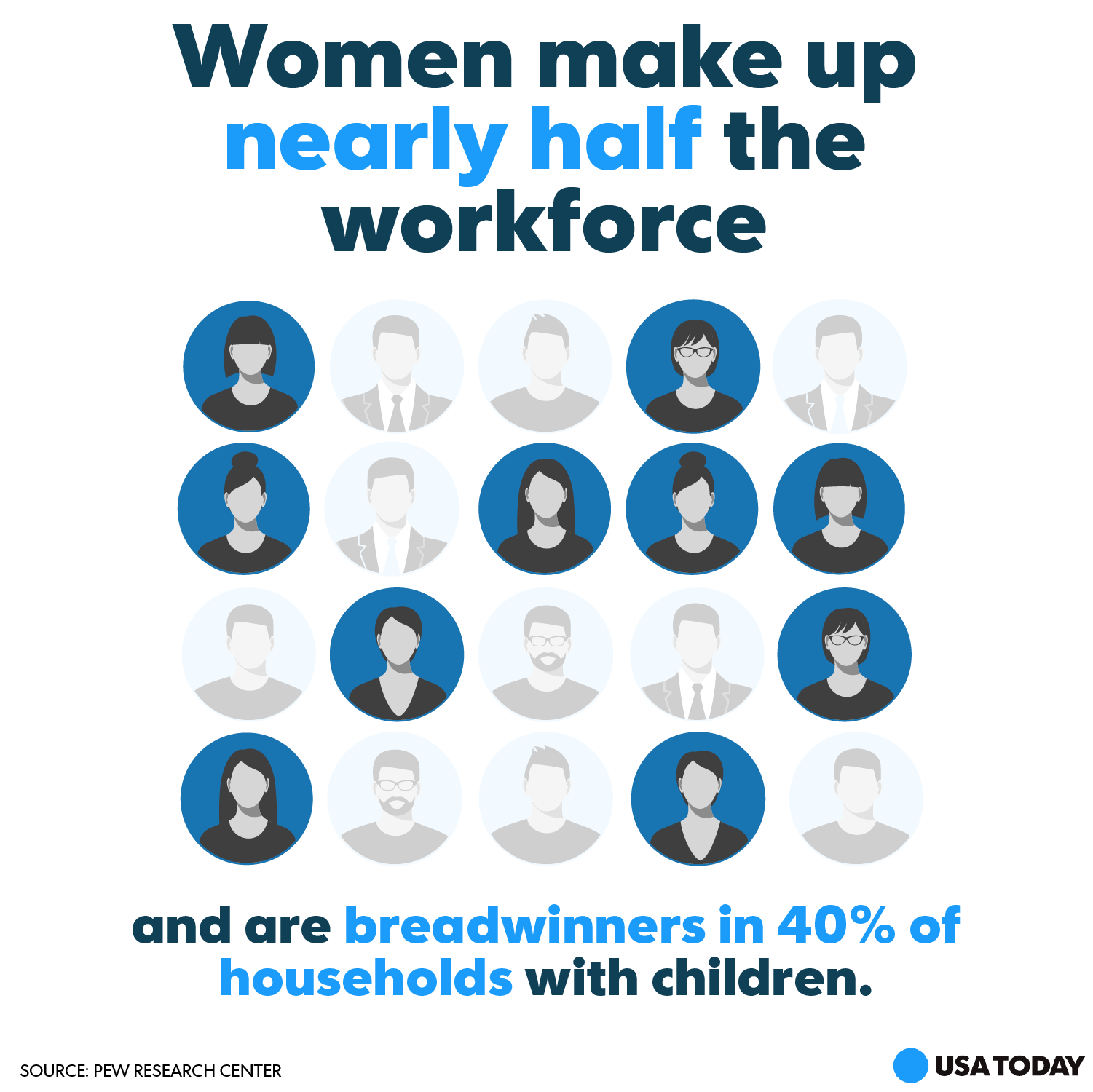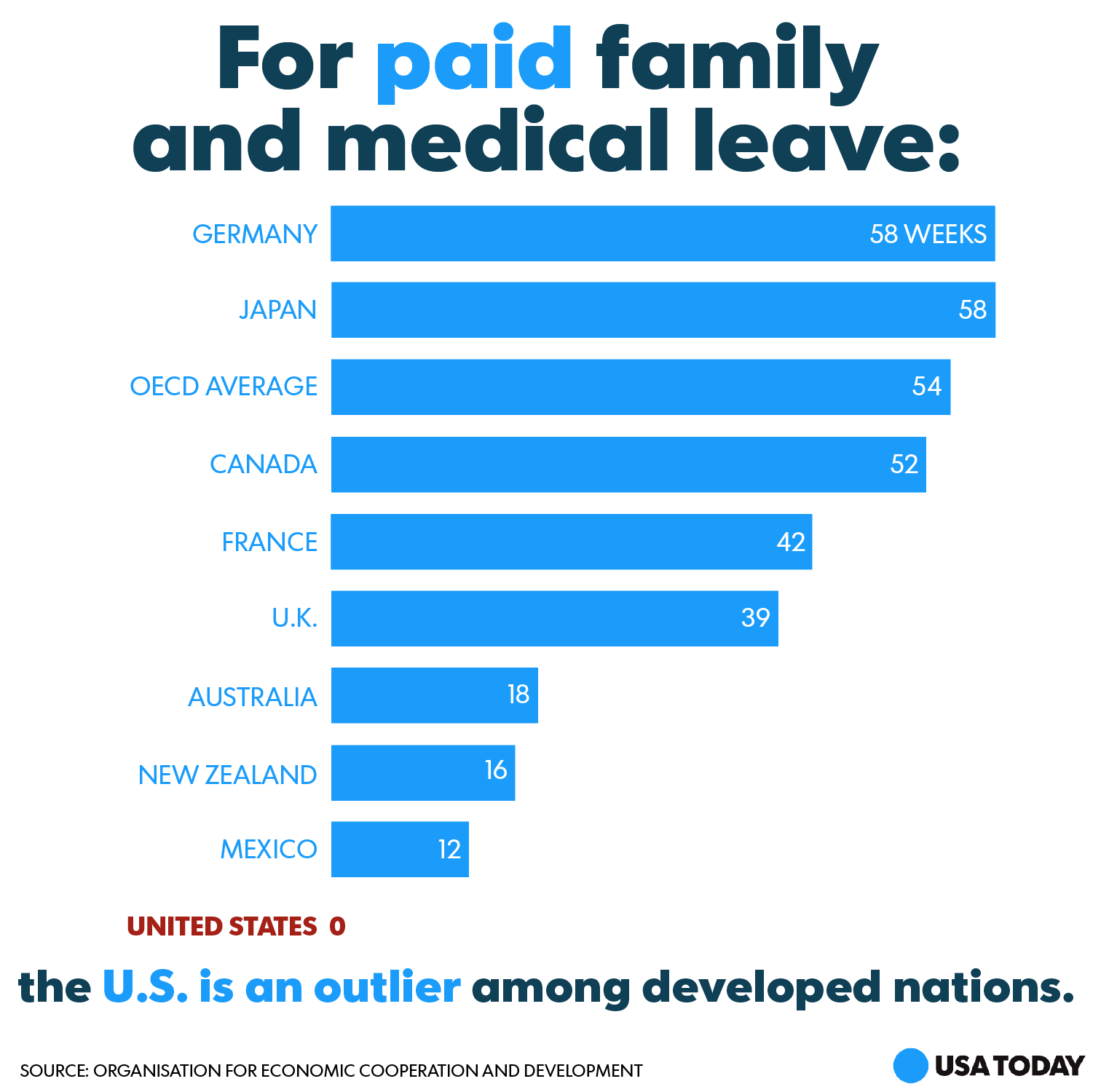Jessica Guynn , USA TODAYPublished 4:04 p.m. ET March 29, 2017 | Updated 10:28 a.m. ET March 30, 2017
Sheryl Sandberg’s bestseller Lean In: Women, Work, and the Will to Lead launched a national conversation on gender in the workplace and an online community of millions of working women ready to bulldoze the barriers they face, from being paid less and promoted less frequently, to carrying an uneven split of the housework and child care.
Four years later, Sandberg says working women are no better off. They are facing pushback in business and in politics, both in the U.S. and around the world.
But, says Sandberg, “the energy around equality” and the growth of Lean In circles, small support groups inspired by the book and the ongoing work of LeanIn.org to empower women and their ambitions, give her hope that change is coming, if not in the next four years, sooner than we expect.
In an interview with USA TODAY for Women’s History Month, Facebook’s No. 2 executive says she has reshaped some of her thinking on feminism in the workplace after being criticized for only speaking to a very specific group of women—highly educated, skilled professionals frequently privileged by their race—and excluding many lower income women, women of color and single mothers.
And, she says, the election of Donald Trump has made the drive for workplace equality as urgent as ever. Topping her agenda: equal pay, a hike in the federal minimum wage, paid family leave and maternity leave. The interview has been condensed and edited.
Q: It has been four years since the publication of Lean In. Are we better off or worse off four years later?
A: In terms of women in leadership roles, we are not better off. We are stuck at less than 6% of the Fortune 500 CEO jobs and their equivalent in almost every country in the world. There were 19 countries run by women when Lean In was published. Today there are 11. Congressional numbers have inched up a tiny bit. And so, overall, we are not seeing a major increase in female leadership in any industry or in any government in the world, and I think that’s a shame.
The Lean In Community is thriving and that gives me hope that this will change in the future. We have 1.5 million members of our community, 33,000 circles in 150 countries, and we’re growing by almost 100 a week. And we know that when people join circles, the great majority of them will do something that is much more ambitious for themselves.
The fact that there is so much energy around equality around the world and the fact that so many women are in circles gives me hope that this will change in the future.
Q: What progress do you hope to see women achieve and what will be be the single biggest factor in propelling that progress?
My goal is very clear, and I wrote about it in Lean In, which is that women run half our companies and countries and men run half our homes. As much as I wish that could happen in four years, I don’t think that’s a likely time period. But I think it can happen sooner than we think. Part of it is having that aspiration and that goal. I think we too often suffer from the tyranny of low expectations.

Q: What have you learned since you published Lean In? At the time the book was enormously popular. But you also came under some criticism for being tone-deaf to your privilege as a wealthy, white, married woman with a big support system. How has that criticism reshaped your thinking on feminism and the workplace? (Sandberg’s 47-year-old husband, Silicon Valley executive Dave Goldberg, died suddenly of a heart ailment in 2015).
A: I posted publicly on Mother’s Day last year that I think I didn’t fully appreciate what it was to be a single mother. I certainly wrote about it in Lean In but I also wrote a whole chapter called “Make Your Partner a Real Partner,” which for people who didn’t have one must have been very hard to read.
I have thought a lot about what it is to be a single mother because now I am one. And financially, I don’t face the struggles that so many do. Thirty-seven percent of single mothers are living in poverty, 40% if you are black or Latina. That’s unacceptable.

Q: Does the Lean In message resonate with Millennial women who tend to be less trusting of corporate and political leaders than Gen Xers or baby boomers? How are you trying to reach them?
A: We have broad participation across age groups from college age up in Lean In circles. And I think the message does resonate, mostly because they want equality.
One of the things that I think is working about the Lean In model is that Lean In is about peer support. These are millennial women, largely, working with millennial women to be ambitious in their own lives. Every millennial woman who joins a circle encourages every other millennial woman in her circle to reach out and reach higher and believe in herself. We make a difference person by person.
‘The future is female’: Young feminists you should be following on Twitter
Q: Does this generation think differently than its predecessors about gender roles and identity?
A: The reason I wrote Lean In is I think people weren’t actually noticing that we had stopped making progress. I gave a TED talk and said: “It turns out men still run the world.” And the audience gasped as if that was news. I think we made so much progress for decades, starting in the 1960s and the 1970s on, that when really the progress stopped, it ground to a halt on leadership roles, on the pay gap, on the percentage of women who are running for office, we didn’t exactly notice. So I think making sure we are correctly looking at where we are. You know, we are 20% in the Congress. We have never had a woman president. We are 5% of the Fortune 500 CEO jobs. Paying attention to that is the first step and understanding that that’s not OK.
The pay gap could vanish for all women – sometime in the 23rd century
Q: You mentioned that we don’t have a woman president. How has the election of Donald Trump affected women and the Lean In movement? What will be the most important issues for women during his administration?
A: I am a longtime Hillary Clinton supporter. I was really disappointed that my children did not see a woman sworn in as president, even though they are young and so I am fully expecting they will, and I’d like it to be sooner rather than later.
Many of the issues we need to work on are as urgent as ever. We are the only developed country in the world that doesn’t have paid maternity leave. The only one. We are one of the only developed countries in the world that doesn’t have paid family leave. That’s unacceptable. Two thirds of minimum-wage workers are women. Unacceptable. All of these things need to be fixed.

Q: The annual study of the state of women in corporate America that Lean In conducts with McKinsey & Co. has elevated issues of female leadership and gender diversity in the national conversation. Are you starting to see any results from it?
A: We know that companies are changing their policies because of our study. Almost two-thirds of companies that participated are planning to add new programs or update existing ones just based on last year’s results. A lot of companies have this data themselves, but they don’t know what to compare it to. Giving them a snapshot, here’s where you are and here are best practices, we think will make a real difference.
State Street using investment power to get more women on boards
Q: Lean In has a partnership with the NBA that focuses on ways men can promote equality at home and at work. What’s the idea behind the campaign and what kind of reaction have you gotten to the public service announcements?
A: These ads run during NBA games and they run through the playoffs and through the finals. That’s pretty incredible because what you get are men who look up to these NBA players and they are being told these NBA players are great fathers and great sons really believing in women’s equality in the workplace. And we think that people model the behavior of the people they look up to, and to achieve equality we are going to need men on board and these are great role models for men.

